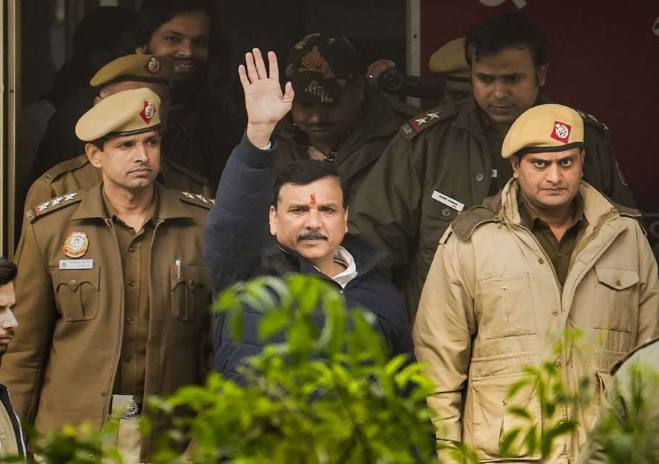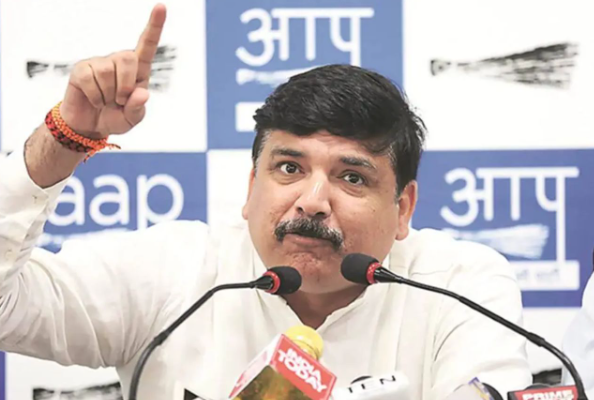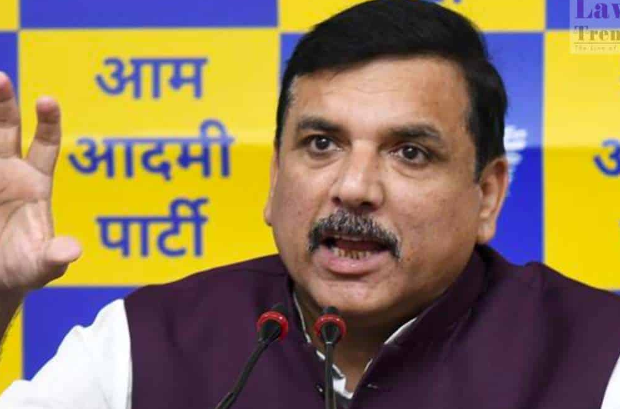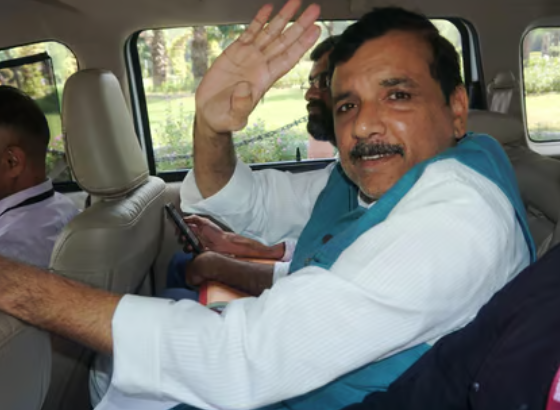
Sanjay Singh Denied Oath: The Power Struggle of a Jailed AAP Leader in Rajya Sabha
Sanjay Singh ,Aam Aadmi Party (AAP) leader currently incarcerated
since October in connection with the Enforcement Directorate’s (ED) money laundering investigation into the now-abandoned Delhi excise policy, faces another setback. Despite a court order permitting him to take oath as a Rajya Sabha Member of Parliament (MP) in police custody, Sanjay Singh has been denied this opportunity by the Rajya Sabha chairman, citing an ongoing investigation with the Privileges Committee.

The 51-year-old politician, suspended from the Rajya Sabha on July 24 of the previous year for non-compliance with the chair’s directives, found himself in a legal battle to exercise his parliamentary duties. The recent court decision allowed Sanjay Singh to take oath in policy custody, highlighting the complexities surrounding his legal predicament. Singh’s lawyer informed the court that the interim bail plea was not pursued, as the AAP leader needed to attend a hearing in another case on February 7.
The court, considering the modified plea and facing no opposition from the ED, dismissed the interim bail application, granting Sanjay Singh the permission to take oath on Monday. This development comes as a result of Sanjay Singhearlier efforts to file his nomination for Rajya Sabha membership on January 4 and receive his membership certificate on January 10. The ongoing legal proceedings, intertwined with the ED’s investigation into money laundering, have kept Singh entangled in a complex web of legal challenges.

The ED’s scrutiny revolves around the alleged money laundering associated with the now-discarded Delhi excise policy, which aimed to rejuvenate the national capital’s struggling liquor business. The case specifically targets the Arvind Kejriwal government’s excise policy for 2021-22, with accusations that it fostered cartelization and favored certain dealers who purportedly paid bribes for favorable treatment. The AAP vehemently denies these allegations, asserting the policy’s legitimacy and countering the bribery charges.
Notably, Sanjay Singh party colleague and former Delhi deputy chief minister, Manish Sisodia, shares a similar fate, having been in jail since March of the preceding year in connection with the same case. The unfolding legal saga not only affects individual politicians but also casts a shadow over the AAP and the Kejriwal-led government. As Singh battles legal challenges, the political implications ripple through the corridors of power, prompting questions about the stability and integrity of governance in the national capital.
In the midst of these legal battles, the denial of the opportunity for Sanjay Singh to take oath as a Rajya Sabha MP amplifies the complexities surrounding his political and legal predicament. The decision by the Rajya Sabha chairman to defer Singh’s oath-taking ceremony, citing ongoing investigations with the Privileges Committee, adds another layer of uncertainty to an already convoluted situation.

The evolving narrative underscores the delicate balance between the legal and political dimensions of Sanjay Singh case. As he strives to fulfill his parliamentary duties amid legal entanglements, the outcome of the ongoing investigations and court proceedings will inevitably shape not only his political future but also impact the broader landscape of Delhi’s political scenario.
The denial of Sanjay Singh oath-taking also raises broader questions about the intersection of legal proceedings and parliamentary responsibilities. In a democracy, the ability of elected representatives to carry out their duties is fundamental. However, when confronted with legal challenges, the balance between upholding the law and allowing elected officials to fulfill their mandates becomes intricate.
Singh’s situation highlights the complexities of navigating the legal system while serving in public office. On one hand, there’s the imperative to uphold the rule of law and ensure that legal processes proceed without interference. On the other hand, there’s the principle of parliamentary privilege, which safeguards the rights and privileges of elected representatives to discharge their duties without undue hindrance.
The decision to deny Sanjay Singh oath-taking underscores the need for clarity and transparency in resolving such conflicts. The involvement of parliamentary committees and judicial oversight is crucial in ensuring that decisions are fair and impartial. Additionally, there must be mechanisms in place to address situations where legal proceedings intersect with parliamentary functions to prevent undue disruption to the democratic process.
For the latest updates-click here.


